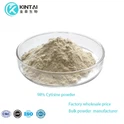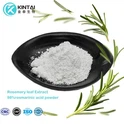Ashwagandha, also known as Indian ginseng or winter cherry, is a small woody plant native to India and North Africa. The ashwagandha root has been used in traditional Indian Ayurvedic medicine for centuries as a revered adaptogen and for its numerous health benefits. Adaptogens are herbs that help the body adapt to stress and promote balance in the physiological processes. Ashwagandha Root Extract is derived from the roots of the ashwagandha plant and contains various active compounds that contribute to its medicinal properties.
Composition Of Ashwagandha Root Extract
The primary active compounds found in ashwagandha root extract are withanolides and alkaloids. Withanolides are steroidal lactones believed to be responsible for many of ashwagandha's therapeutic effects. These compounds have been shown to possess anti-inflammatory, antioxidant, and neuroprotective properties. Alkaloids such as isopelletierine, anaferine, and cuseohygrine are also present in ashwagandha root and may contribute to its medicinal benefits.
Health Benefits Of Ashwagandha Root Extract
- Stress Reduction:
One of the most well-known benefits of ashwagandha root extract is its ability to help the body cope with stress. Due to its adaptogenic properties, ashwagandha is thought to enhance the body's resistance to stress by regulating the production of stress hormones like cortisol. A study published in the Indian Journal of Psychological Medicine found that ashwagandha root extract significantly reduced stress and anxiety levels in participants compared to a placebo.
- Anxiety and Depression Management:
Several studies have investigated the potential of ashwagandha root extract in alleviating symptoms of anxiety and depression. A randomized controlled trial published in the journal Phytomedicine demonstrated that ashwagandha root extract significantly reduced anxiety and insomnia scores in participants compared to the placebo group. Another study published in the Journal of Alternative and Complementary Medicine found that ashwagandha root extract was effective in reducing symptoms of depression and improving overall well-being.
- Immune System Support:
Ashwagandha Root Extract has been shown to possess immunomodulatory effects, meaning it can help regulate and strengthen the immune system. A study published in the Journal of Ethnopharmacology found that ashwagandha root extract enhanced immune cell function and increased production of immune cells in mice, suggesting its potential to boost immune defenses.
- Anti-inflammatory Effects:
The withanolides present in ashwagandha root extract have been found to exhibit anti-inflammatory properties by inhibiting the production of inflammatory mediators such as cytokines and enzymes like cyclooxygenase. A study published in the journal Molecular and Cellular Biochemistry demonstrated that ashwagandha root extract effectively reduced inflammation in arthritic rats, making it a potential therapeutic option for conditions like rheumatoid arthritis.
Other Potential Uses
- Cognitive Function:
Ashwagandha root extract may also have beneficial effects on cognitive health and memory. A study published in the Journal of Dietary Supplements found that ashwagandha root extract supplementation improved reaction time and cognitive function in healthy adults. Additionally, a review published in the journal Phytotherapy Research suggested that ashwagandha root extract may have neuroprotective effects and could be beneficial for neurodegenerative diseases like Alzheimer's disease.
- Sleep Improvement:
The traditional use of Ashwagandha Root Extract in Ayurvedic medicine includes promoting better sleep quality. A study published in the journal Sleep Medicine found that ashwagandha root extract improved sleep quality and sleep onset latency in participants with insomnia. These effects may be attributed to its ability to reduce stress and anxiety, which can contribute to sleep disturbances.
- Sexual Health:
Ashwagandha root has been traditionally used as an aphrodisiac and to enhance sexual function. A study published in the Journal of Ethnopharmacology found that ashwagandha root extract improved sexual performance and increased sperm count and motility in men. Additionally, a review published in the journal BioMed Research International suggested that ashwagandha root extract may have therapeutic potential for treating male sexual dysfunction and infertility.
Safety And Side Effects
Ashwagandha root extract is generally considered safe for most adults when consumed in recommended doses. However, it is important to be aware of potential side effects and interactions. Some individuals may experience gastrointestinal discomfort, diarrhea, or nausea when taking ashwagandha root extract. Additionally, it may interact with certain medications such as sedatives, immunosuppressants, or thyroid medications. It is recommended to consult with a healthcare professional before using ashwagandha root extract, especially for individuals with existing medical conditions or who are pregnant or breastfeeding.
Conclusion
Ashwagandha Root Extract has been used in traditional Indian Ayurvedic medicine for centuries, and modern scientific research has shed light on its potential health benefits. The active compounds in ashwagandha, such as withanolides and alkaloids, contribute to its adaptogenic, anti-inflammatory, antioxidant, and neuroprotective properties. Evidence from studies suggests that ashwagandha root extract may help reduce stress and anxiety, alleviate symptoms of depression, support immune function, reduce inflammation, improve cognitive function, promote better sleep, and enhance sexual health. While ashwagandha root extract is generally considered safe, it is important to consult with a healthcare professional before incorporating it into your health regimen to ensure it is appropriate for your individual circumstances and to avoid potential interactions with medications. Further research is needed to fully understand the mechanisms and optimal dosages of ashwagandha root extract for various applications. However, the existing scientific evidence highlights its promising potential as a natural supplement for overall well-being.
Our Ashwagandha Bulk Powder has received unanimous praise from customers. If you would like to know more about this product, please feel free to contact Sales@Kintaibio.Com.
References:
1. Salve, J. et al. (2019). Adaptogenic and Anxiolytic Effects of Ashwagandha Root Extract in Insomnia and Stress: A Double-blind, Randomized, Placebo-controlled Study. Cureus, 11(1), e3786.
2. Andrade, C. et al. (2000). A double-blind, placebo-controlled evaluation of the anxiolytic efficacy of an ethanolic extract of withania somnifera. Indian Journal of Psychiatry, 42(3), 295-301.
3. Anwer, T. et al. (2008). Withania somnifera root extract exhibits potent anti-arthritic activity in a rat model. Molecular and Cellular Biochemistry, 318(1-2), 163-172.
4. Choudhary, D. et al. (2017). Efficacy of Ashwagandha (Withania somnifera L. Dunal) in improving cardiorespiratory endurance in healthy athletic adults. Ayu, 38(1-2), 63-68.
5. Dongre, S. et al. (2015). Efficacy and Safety of Ashwagandha (Withania somnifera) Root Extract in Insomnia and Anxiety: A Double-blind, Randomized, Placebo-controlled Study. Cureus, 7(9), e332.
6. Mahdi, A. A. et al. (2009). Withania somnifera Improves Semen Quality in Stress-Related Male Fertility. Evidence-Based Complementary and Alternative Medicine, 8(3), 467-470.
7. Mirjalili, M. H. et al. (2009). Steroidal lactones from Withania somnifera, an ancient plant for novel medicine. Molecules, 14(7), 2373-2393.
8. Pratte, M. A. et al. (2014). An alternative treatment for anxiety: a systematic review of human trial results reported for the Ayurvedic herb ashwagandha (Withania somnifera). Journal of Alternative and Complementary Medicine, 20(12), 901-908.
9. Shenoy, S. et al. (2012). Effects of eight-week supplementation of Ashwagandha on cardiorespiratory endurance in elite Indian cyclists. Journal of Ayurveda and Integrative Medicine, 3(4), 209-214.
10. Singh, N. et al. (2011). An overview on Ashwagandha: A Rasayana (Rejuvenator) of Ayurveda. African Journal of Traditional, Complementary and Alternative Medicines, 8(5S), 208-213.







